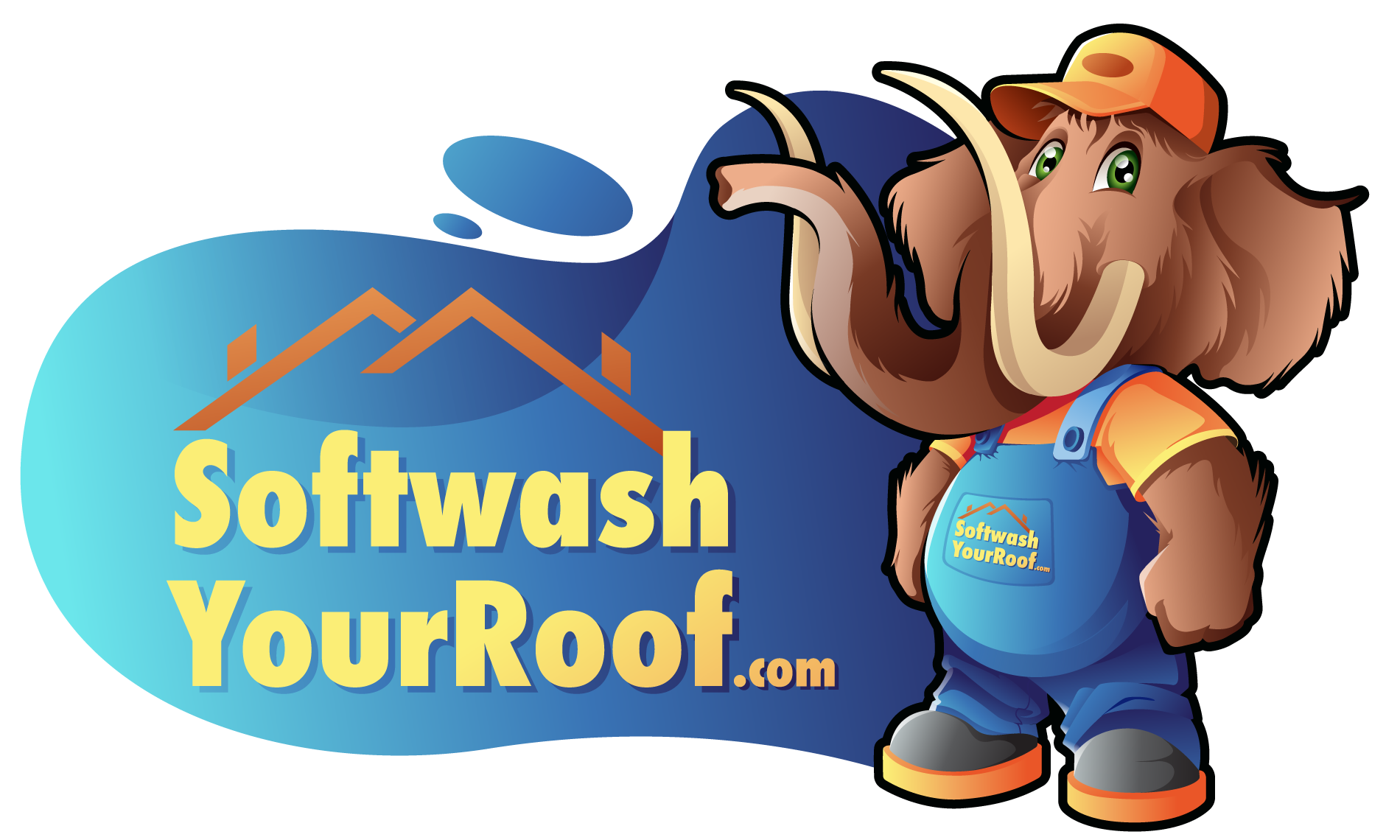Softwashing vs. Pressure Washing: Which is Superior for You
Soft Washing vs. Pressure Washing: Which is Superior for Your Home?(2024)
Introduction:
Have you ever wondered if there's a gentler and more effective way to clean your home's exterior without risking damage? You're not alone! A recent study found that 67% of homeowners are concerned about potential damage from traditional pressure washing. That's where the soft washing vs. pressure washing debate comes in. Today, we'll explore these two popular cleaning methods, with a focus on the effectiveness of soft washing, helping you make the best choice for your home's unique needs. Get ready to become a cleaning pro!
Key Takeaways: Soft Washing vs Pressure Washing
- Pressure Differences: • Soft washing uses low pressure (under 500 PSI) • Pressure washing uses high pressure (1300-3100 PSI)
- Cleaning Mechanism: • Soft washing relies on specialized cleaning solutions • Pressure washing depends on water force
- Surface Suitability: • Soft washing is ideal for delicate surfaces (vinyl siding, wood, roofs) • Pressure washing works best on durable surfaces (concrete, metal)
- Stain Types: • Soft washing excels at organic stains (mold, algae, mildew) • Pressure washing tackles tough, ingrained stains (oil, deep dirt)
- Long-term Effects: • Soft washing tends to have longer-lasting results • Pressure washing can potentially damage surfaces over time if used incorrectly
- Environmental Impact: • Soft washing uses less water but requires careful chemical management • Pressure washing uses more water but fewer chemicals
- Time Efficiency: • Pressure washing is generally quicker for immediate results • Soft washing may take longer but often requires less frequent cleaning
- DIY vs. Professional: • Both can be DIY, but there's a learning curve • Consider hiring pros for large or complex jobs
- Frequency of Use: • Soft washing is typically needed annually for home maintenance • Pressure washing frequency varies based on surface and use
- Safety Considerations: • Both methods require proper safety gear and precautions. Remember, your safety is paramount. Pressure washing poses more immediate physical risks, so it's crucial to be extra cautious.
Remember, the key is using the proper method for the right job. I learned the hard way that one size doesn't fit all when it comes to cleaning! Whether tackling stubborn driveway stains or giving your siding a gentle refresh, choosing the appropriate method can make all the difference. You have the power to make the right choice. Happy cleaning, folks!
What is Soft Washing?
Alright, let me tell you about soft washing – it's been a game-changer for me to keep my house looking fresh without damaging it. The first time I heard about it, I was like, “Soft washing? What's that, some fancy laundry technique?” Boy, was I off the mark!
So, soft washing is a gentle way to clean the exterior of your home or other surfaces. It's like giving your house a nice, soothing bath instead of blasting it with a fire hose. Trust me, I learned the hard way that not everything needs a power washer's punch—RIP, my old wooden deck. But with soft washing, you can rest easy knowing that your surfaces are being cleaned without the risk of damage.
The critical thing about soft washing is that it uses low pressure. We're talking way less oomph than your typical pressure washer. Instead of relying on brute force, soft washing brings in some clever chemistry to do the heavy lifting. It's like using your brains instead of brawn, you know?
These specialized cleaning solutions are the real MVPs here. They're designed to break down dirt, grime, and even tough stuff like algae and mold. And get this – they keep working even after the initial wash! It's like having a little army of cleaners stick around to keep things tidy.
With soft washing, you're not limited to just one or two surfaces. It's pretty versatile. I've used it on all sorts of surfaces around my place. Vinyl siding? Check. Stucco? Absolutely. Roofs? Absolutely! It's even great for more delicate stuff like wood siding or painted surfaces. So, no matter what surface you're dealing with, soft washing has got you covered.
The benefits of soft washing for delicate materials are pretty sweet. Remember that wooden deck I mentioned earlier? After replacing it (ugh, expensive lesson), I started using soft washing to keep it clean. No more splintered wood or stripped stain! It's gentle enough that it doesn't damage the surface but still gets everything looking spick and span.
Once, I was chatting with my neighbor about how clean my house looked, and he said, “You must've pressure washed recently, huh?” I was a know-it-all when I explained it was soft-washed. I was spreading the good word.
The thing is, soft washing is about more than just being gentle. It's actually more effective in many ways. Those cleaning solutions I mentioned? They don't just clean—they disinfect, too. So you're not just making things look pretty; you're creating a healthier environment around your home.
And let me tell you, it lasts way longer than a regular wash. I used to have to pressure wash my driveway every spring, but since switching to soft washing, I can go a couple of years between cleanings. It's been a real-time save, not to mention easier on my water bill! With soft washing, you can enjoy a clean home for longer periods, reducing the frequency of your cleaning tasks.
Of course, it's not all sunshine and rainbows. Soft washing takes a bit longer than pressure washing, and you must be careful with the chemicals. I did not cover my plants the first time I did it – let's say my flowerbeds weren't too happy with me.
But overall, soft washing has been a real game-changer for me. It's gentler, more effective, and keeps things cleaner for longer. Plus, watching all that gunk melt away is pretty satisfying without having to blast it off. If you haven't tried it yet, I'd recommend giving it a shot. Your home (and your water pressure) will thank you!
Understanding Pressure Washing
Pressure washing, a powerful tool in your hands. When I first wielded a pressure washer, I felt like I had the power to obliterate every speck of dirt from the face of the earth!
So, what exactly is pressure washing? Well, it's exactly what it sounds like. You're using water under high pressure to clean stuff. And when I say high pressure, I mean high. For home use, we're talking anywhere from 1300 to 3100 PSI (pounds per square inch). That's some serious oomph!
The mechanics behind it are pretty straightforward. You have a motor that powers a pump, which forces water through a narrow nozzle at high speed. It's like turning your garden hose into a mini firehose. Trust me, the first time you pull that trigger, you'll feel like a superhero… or a firefighter. Take your pick!
When it comes to tough cleaning jobs, pressure washing is the heavyweight champion. I remember the first time I tackled my oil-stained driveway. It was like watching years of grime melt away. Grease stains? Gone. Mildew? Sayonara. Am I chewing gum stuck on the sidewalk? Poof!
Pressure washing is a versatile solution for a variety of cleaning tasks. Driveways, patios, decks (with caution), outdoor furniture, fences – it's a jack-of-all-trades. I even used it to restore my old barbecue grill once. Just a tip: be prepared for a backyard treasure hunt!
But here's the thing – pressure washing isn't all fun and games. There are some serious risks and drawbacks you need to know about. I learned some of these the hard way, so listen up!
First off, that high-pressure water jet can be dangerous. I once made the mistake of wearing flip-flops while pressure washing. Let's say my big toe didn't appreciate the impromptu pedicure. Always wear closed-toe shoes, folks!
Then there's the damage you can do to surfaces if you need to be more careful. I got too enthusiastic with my fence once and ended up etching the wood. Not my proudest moment. And I need to get started on what can happen if you hit a window or car paint with that high-pressure stream. Yikes!
Another drawback is that pressure washing only sometimes gets rid of the root cause of the problem. Sure, it'll blast away that mold on your siding, but unless you address why the mold is growing in the first place, it'll be back before you know it.
Let's talk about water usage. Pressure washing can use a lot of water. I got so carried away cleaning my driveway that I didn't notice how long I'd been there. My water bill that month needed to be more pretty.
Oh, and here's something I wish someone had told me earlier – pressure washing can force water into places it shouldn't go. I learned this the hard way when I accidentally shot water under my siding. Hello, mold problem!
Despite all these potential issues, pressure washing is fantastic when used correctly. It's all about knowing when to use it and when to opt for a gentler method like soft washing.
Remember, when in doubt, seek professional advice. If you're unsure whether pressure washing is the right choice for your cleaning job, don't hesitate to call in a pro. They have the expertise to guide you, potentially saving you from headaches and repair bills.
So there you have it—pressure washing in a nutshell. It's powerful, effective, and oddly satisfying but requires some know-how to use safely. Remember, with great power comes great responsibility… and occasionally, a spotless driveway!
Critical Differences Between Soft Washing and Pressure Washing
Oh boy, let me tell you about when I learned the difference between soft and pressure washing the hard way. It was like comparing a gentle rain to a fire hose!
So, pressure levels. This is where things get interesting. With pressure washing, you're looking at some serious power. I'm talking anywhere from 1300 to 3100 PSI for home use. The first time I used a pressure washer, I almost fell backward! It was like trying to control a small rocket.
Soft washing, on the other hand, is way gentler. We're discussing pressures similar to a garden hose, usually under 500 PSI. I remember thinking, “How's this gonna clean anything?” But let me tell you, it works like magic!
Now, onto the cleaning solutions. This is where soft washing shines. It uses specialized chemicals that do a lot of the heavy lifting. These solutions are designed to break down dirt, grime, and even tough stuff like algae and mold. It's like having a team of tiny scrubbers working for you.
Pressure washing, though? It's all about the force of the water. You can add some detergent, but it could be more crucial. I learned this the hard way when I tried to pressure-wash some stubborn mold off my deck. Spoiler alert: it didn't end well for the deck.
When it comes to impact on different surfaces, soft washing is like a gentle massage for your home's exterior. It's the safe choice for delicate surfaces like vinyl siding, stucco, and roofs. I even used it on my old wooden fence without any issues, a testament to its gentle yet effective cleaning power.
Pressure washing, on the other hand, can be like taking a sledgehammer to a nail if you're not careful. I once got overzealous with my brick patio and etched the surface, a mistake I won't be making again. It's a powerful tool, but it requires a delicate touch.
The long-term effects are where you see the difference. Soft washing tends to be gentler on materials and finishes over time. It's less likely to cause wear and tear or strip away protective coatings. Plus, because it uses those specialized cleaning solutions, it often provides longer-lasting results.
While effective in the short term, pressure washing can be harsh on surfaces over time. I learned this the hard way with my deck. After a few too many pressure washing sessions, I noticed the wood starting to splinter and the stain wearing away. It was like watching my deck age in fast-forward!
But here's the kicker – soft washing keeps things cleaner for longer. Those cleaning solutions don't just wash away dirt; they keep working to prevent new growth. I was initially skeptical, but after soft washing my vinyl siding, I noticed it stayed cleaner way longer than when I used to pressure wash it.
Of course, soft washing is not all sunshine and roses. It takes longer than pressure washing, and you must be careful with those chemicals. I did not cover my plants the first time I soft-washed my house, so let's say my flower beds weren't too happy with me.
And pressure washing? It's still got its place. Sometimes, you need that extra oomph for harsh, durable surfaces like concrete driveways or metal equipment. I wouldn't trade my pressure washer for anything when it comes to cleaning my grimy trash cans!
Ultimately, I've learned it's all about using the right tool for the job. Soft washing for delicate surfaces and long-term care, pressure washing for tough jobs on durable surfaces. It's like having a Swiss Army knife for cleaning – you have to know which blade to use and when. This knowledge empowers you to make the best choices for your home.
So there you have it – the key differences between soft and pressure washing, straight from someone who's made almost every mistake in the book. Trust me, your home (and water bill) will thank you for knowing the difference!
When to Choose Soft Washing
Alright, let's chat about when to choose soft washing. Figuring this out initially was like solving a puzzle, but once I got the hang of it, it was a total game-changer!
So, what are the ideal scenarios for soft washing? Let me tell you, it was a huge relief when I found out about it. I was all set to break out the pressure washer, but then I remembered my neighbor's horror story about blasting a hole in his siding. That's when I decided to give soft washing a shot.
It turns out that soft washing is perfect for regular home maintenance. It's like giving your house a spa day instead of a brutal workout. I use it every spring to freshen up my vinyl siding; the neighbors always ask how I keep it looking so good. Little do they know, it's all about being gentle and it's so easy to use!
Now, when it comes to types of stains and dirt, soft washing is like a superhero for specific problems. You know that green stuff that starts growing on the north side of your house? Yeah, that's algae, and soft washing kicks its butt! I had this nasty algae problem on my roof and worried I'd have to replace the shingles. But With soft washing, I was able to tackle it myself. It's so versatile!
Soft washing is also excellent for mold and mildew. I once had this gross, black, streaky stuff on my patio furniture. I tried scrubbing it for hours with no luck. Then I soft-washed it, and boom! It was like new. The cleaning solutions in soft washing don't just remove this stuff; they help prevent it from returning. It's like magic, I swear.
Oh, and let's talk about delicate surfaces. This is where soft washing shines. I learned this lesson the hard way with my old wooden deck. Pressure washed it once and ended up with a splintery mess. But soft washing? It's like a gentle massage for your wood surfaces.
The same goes for vinyl siding. I used to be terrified of cleaning my siding, worried I'd damage it. But soft washing? It's so gentle you don't have to worry. I even use it on my painted surfaces without fear of stripping them.
Now, here's something I didn't think about at first—environmental considerations. It turns out that soft washing can actually be better for the environment in some ways. Yeah, I was surprised, too! You're conserving a precious resource because it uses less water than pressure washing.
But here's the catch—you have to be careful with those cleaning solutions. The first time I soft-washed my house, I made the mistake of not covering my flower beds. Let's just say my petunias weren't too happy with me. Now, I always make sure to use eco-friendly solutions to protect my plants.
I've noticed that soft washing tends to keep things cleaner for longer. That means I'm using fewer chemicals and less water over time. It's a win-win!
Soft washing isn't always the answer. If you've got harsh concrete or metal stains, you might need to bring in the big guns (aka pressure washing). But for most of my regular cleaning, soft washing is all the way.
And here's a pro tip I wish I'd known earlier: soft washing is excellent for prepping surfaces for painting or staining. I used it before repainting my shutters last year, and the paint job came out smoother than a baby's bottom.
So there you have it – my take on when to choose soft washing. It's all about being gentle, effective, and intelligent about what your surfaces need. Trust me, you'll never want to return once you go soft (washing)!
Best Applications for Pressure Washing
Alright, let's talk pressure washing! This is where things get exciting – and sometimes a little messy. I remember the first time I fired up a pressure washer. It was like wielding Thor's hammer, I tell you!
So, when does pressure washing shine? Well, let me paint you a picture. Imagine your driveway looking like it's been marinating in motor oil for a decade. That's when you break out the big guns! I had this exact situation a few years back. My driveway looked like a Rorschach test of grease stains. One afternoon with my trusty pressure washer, and bam! It was like I'd installed a new driveway overnight.
Now, let's chat about those tough stains and grime that practically beg for high pressure. You know that green, slimy stuff that builds up on your patio over winter? Yeah, that's pressure-washer territory. I once tried to scrub it off by hand. Three hours later, I had a sore back and a patio that still looked like it was cosplaying as a swamp. Enter the pressure washer – 15 minutes later; my patio was so clean you could've eaten off it. (Not that I'd recommend that, mind you.)
Oh, and wait to get me started on gum removal. My kid's school asked for parent volunteers to clean the playground, and I showed up with my pressure washer. Let's say I became the gum-busting hero that day. Those stubborn little sticky spots didn't stand a chance!
Regarding durable surfaces, pressure washing is like a match made in heaven. Concrete? Everyone loves it. Brick? I can't get enough. Metal? Bring it on! I once pressure-washed my old rusty garden tools, and I swear they looked better than when I bought them.
But here's a word of caution from someone who learned the hard way – not all surfaces can handle the pressure. I got too excited once and decided to pressure wash my car. Let's say I know more about auto body repair than I ever wanted to.
Now, let's talk about time efficiency. This is where pressure washing earns its stripes. Remember that driveway I mentioned? That job would've taken me all weekend with a scrub brush. With the pressure washer? It was done in the afternoon. It's like the microwave of cleaning—quick and effective.
I've even used my pressure washer to strip paint off old furniture I was refinishing. Talk about a time-saver! What would've taken hours of sanding was done in minutes. Of course, I may have gotten a bit carried away and stripped some of the wood, too. Oops.
My neighbor once asked to borrow my pressure washer for a “quick job.” Two hours later, I found him in his backyard, cackling with glee as he blasted away years of grime from his fence. He was having too much fun to notice he was also stripping away some of the wood. Lesson learned: Always give a quick tutorial before lending out your power tools!
But here's the thing about pressure washing – it can be addictive. Once you start, you want to clean ALL THE THINGS. I've had to physically restrain myself from pressure washing my dog after a muddy walk. (Just kidding… mostly.)
Of course, pressure washing is only sometimes the answer. For more delicate jobs, consider soft washing. But when you've got tough grime on durable surfaces and need it gone yesterday? Pressure washing is your best friend.
Just remember, with great power comes great responsibility. And possibly a very wet T-shirt if you need to be more careful with that spray. I would appreciate that one.
So there you have it – the lowdown on when to break out the pressure washer. It's powerful, it's efficient, and it's oddly satisfying. Just try not to have too much fun, okay? Your neighbors might get jealous of your squeaky-clean driveway!
Conclusion:
Whew! We've covered a lot of ground in our soft washing vs pressure washing showdown. Remember, there's no one-size-fits-all solution – it depends on your home's unique needs. Whether you opt for the gentle touch of soft washing or the powerful blast of pressure washing, the key is to keep your home's exterior clean and well-maintained. Why not give your home the spa day it deserves? Your neighbors might get a little house-envy! Ready to take the plunge? Consult with a professional or gear up for a DIY adventure – your home will thank you with a sparkling clean exterior that'll be the talk of the neighborhood!
FAQ Soft Washing vs Pressure Washing
Q: What's the main difference between soft washing and pressure washing?
A: Oh boy, this is a biggie! The main difference is in the pressure used. Soft washing uses low pressure (think garden hose) with specialized cleaning solutions, while pressure washing uses high-pressure water jets. It's like comparing a gentle rain to a fire hose!
Q: Is soft washing safe for all surfaces?
A: Generally, yes! Soft washing is gentler and safer for most surfaces, especially delicate ones like vinyl siding, wood, and roofs. But always test a small, inconspicuous area first. I learned this the hard way with my favorite garden gnome. RIP, Gerry.
Q: Can pressure washing damage my property?
A: It sure can if you're not careful! I once got a bit too trigger-happy and etched a pattern into my driveway. Pressure washing can damage wood, strip paint, and even force water under siding if you're not careful. It's all about knowing when and how to use it.
Q: How often should I soft wash or pressure wash my house?
A: Great question! For soft washing, once a year is usually enough for most homes. Pressure washing? It depends on the surface and how dirty it gets. My driveway needs it every spring, but my deck only every couple of years. Use your judgment – if it looks dirty, it probably is!
Q: Can I DIY soft washing and pressure washing, or should I hire a pro?
A: You can totally DIY! But there's a learning curve. I flooded my flower beds the first time I tried soft washing. If you're not confident or dealing with hard-to-reach areas, calling in a pro might save you some headaches (and possibly a trip to the ER).
Q: Are the chemicals used in soft washing safe for the environment?
A: They can be! Many pros use biodegradable solutions these days. But you've gotta be careful. I always cover my plants and use eco-friendly products. Nobody wants a chemical-burned garden!
Q: Which method is more cost-effective in the long run?
A: Ooh, tricky one! Soft washing often lasts longer because it kills the organisms causing the dirt. But pressure washing equipment is cheaper. In my experience, a mix of both, used appropriately, is most cost-effective.
Q: Can pressure washing remove tough stains like oil from concrete?
A: You bet! This is where pressure washing shines. I once spilled an entire oil can on my garage floor. Pressure washing + degreaser = problem solved! Just be prepared for some serious scrubbing for really tough stains.
Q: Is soft washing effective for removing mold and mildew?
A: Absolutely! The chemicals in soft washing are designed to kill mold and mildew, not just remove them. It's like giving your house a deep cleanse. My moldy patio furniture? Looks brand new after a soft wash.
Q: How long does it take for surfaces to dry after soft washing or pressure washing?
A: It varies, but generally, pressure-washed surfaces dry faster because less water is used. Soft-washed surfaces might take a few hours to a day. Pro tip: don't soft wash right before a rainstorm. Ask me how I know…
Remember, folks, when in doubt, ask a pro! And always wear closed-toe shoes when pressure washing. Trust me, your toes will thank you later!






8 Comments
Comments are closed.